
Enchanting Burgas: Bulgaria's Coastal Gem
The Burgas Region in Bulgaria is a captivating blend of sun-kissed beaches, rich history, and vibrant culture. Situated along the picturesque Black Sea coast, Burgas offers a delightful escape for travelers seeking both relaxation and adventure. The city itself is a charming hub of activity, with its lively promenades, modern shopping centers, and bustling markets offering a taste of local life. Don't miss a stroll through the Sea Garden, a sprawling park that stretches along the coastline, providing stunning views and a tranquil retreat from the city's hustle and bustle. Beyond the city, the Burgas Region boasts a wealth of natural beauty and historical treasures. The nearby UNESCO World Heritage Site of Nessebar is a must-visit, with its cobblestone streets, ancient ruins, and quaint wooden houses telling the story of centuries past. For nature enthusiasts, the region's lakes, including Lake Vaya and Lake Pomorie, are perfect spots for birdwatching and exploring diverse ecosystems. The Strandzha Nature Park, one of the largest protected areas in Bulgaria, offers hiking trails that wind through dense forests and reveal breathtaking landscapes. Burgas also serves as a gateway to some of Bulgaria's most famous seaside resorts, such as Sunny Beach and Sozopol. These coastal towns are renowned for their golden sands, crystal-clear waters, and vibrant nightlife. Whether you're lounging by the sea, exploring ancient history, or immersing yourself in local culture, the Burgas Region promises an unforgettable experience for every traveler.
Local tips in Burgas Region
- Visit the Sea Garden in Burgas for a relaxing walk and stunning sea views.
- Plan a day trip to Nessebar to explore its rich history and charming architecture.
- For birdwatchers, Lake Pomorie is a great spot to see a variety of bird species.
- Take a hike in Strandzha Nature Park to enjoy its lush forests and scenic trails.
- Experience the vibrant nightlife in Sunny Beach, a short drive from Burgas.
- Try the local seafood dishes in Burgas, known for their fresh and delicious flavors.
Enchanting Burgas: Bulgaria's Coastal Gem
The Burgas Region in Bulgaria is a captivating blend of sun-kissed beaches, rich history, and vibrant culture. Situated along the picturesque Black Sea coast, Burgas offers a delightful escape for travelers seeking both relaxation and adventure. The city itself is a charming hub of activity, with its lively promenades, modern shopping centers, and bustling markets offering a taste of local life. Don't miss a stroll through the Sea Garden, a sprawling park that stretches along the coastline, providing stunning views and a tranquil retreat from the city's hustle and bustle. Beyond the city, the Burgas Region boasts a wealth of natural beauty and historical treasures. The nearby UNESCO World Heritage Site of Nessebar is a must-visit, with its cobblestone streets, ancient ruins, and quaint wooden houses telling the story of centuries past. For nature enthusiasts, the region's lakes, including Lake Vaya and Lake Pomorie, are perfect spots for birdwatching and exploring diverse ecosystems. The Strandzha Nature Park, one of the largest protected areas in Bulgaria, offers hiking trails that wind through dense forests and reveal breathtaking landscapes. Burgas also serves as a gateway to some of Bulgaria's most famous seaside resorts, such as Sunny Beach and Sozopol. These coastal towns are renowned for their golden sands, crystal-clear waters, and vibrant nightlife. Whether you're lounging by the sea, exploring ancient history, or immersing yourself in local culture, the Burgas Region promises an unforgettable experience for every traveler.
When is the best time to go to Burgas Region?
Iconic landmarks you can’t miss
The Sea Garden
Experience the beauty of nature and culture at The Sea Garden in Burgas, a perfect spot for relaxation and recreation by the Black Sea.
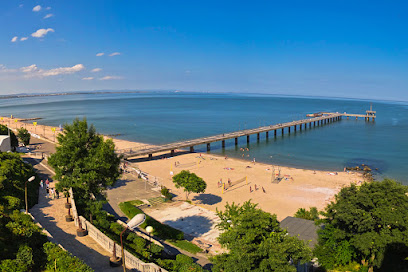
Castle of Ravadinovo
Discover a fairytale escape at the Castle of Ravadinovo, a modern architectural marvel with enchanting gardens near Sozopol, Bulgaria.
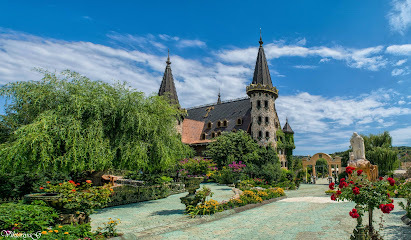
Зоопарк Бургас
Explore the enchanting Burgas Zoo, home to diverse wildlife and engaging educational experiences for families and animal lovers in Bulgaria.
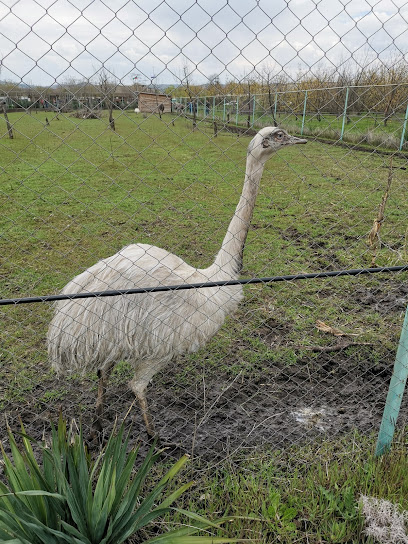
Акве калиде – Термополис
Experience the ancient thermal baths of Aquae Calidae, where history and relaxation merge in the heart of Burgas, Bulgaria.
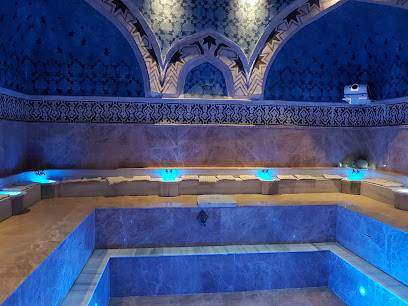
Burgas
Experience the charm of Burgas, a vibrant coastal city where stunning beaches meet rich culture and lively nightlife.
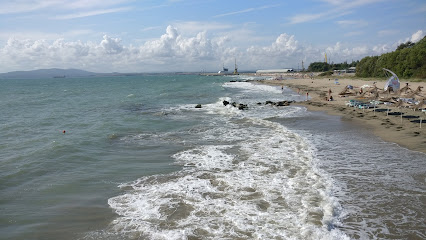
Camel Park Sunny Beach
Discover a unique experience at Camel Park Sunny Beach, where adventure and animal interaction await in beautiful Bulgaria.
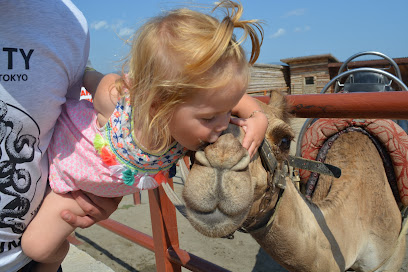
Nature Conservation Center Poda
Experience the tranquility of Nature Conservation Center Poda, a stunning preserve with rich biodiversity and scenic trails near Burgas, Bulgaria.
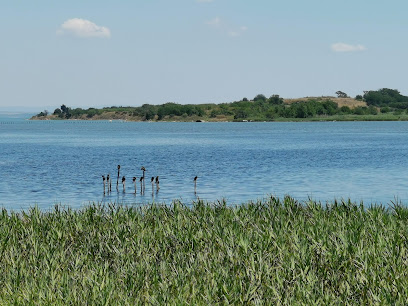
Church Saints Cyril and Methodius
Discover the serene beauty of the Church of Saints Cyril and Methodius in Burgas, a cultural and spiritual landmark that enchants every visitor.
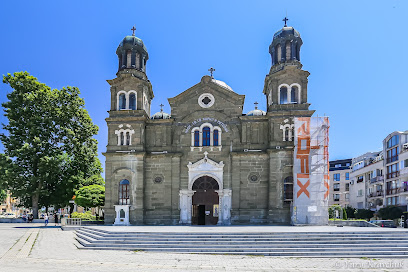
The Pier of Burgas
Experience the charm of Burgas at the iconic pier: stroll along the Black Sea, enjoy stunning sunsets, and immerse yourself in local culture.
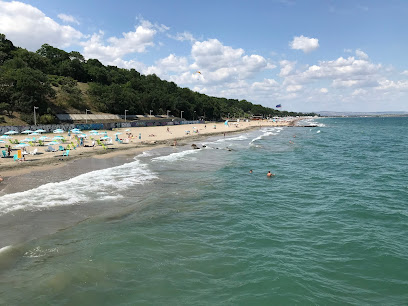
Alyosha Monument
Discover the Alyosha Monument in Burgas, a landmark honoring WWII heroes and reflecting Bulgaria's socialist history in the city center.
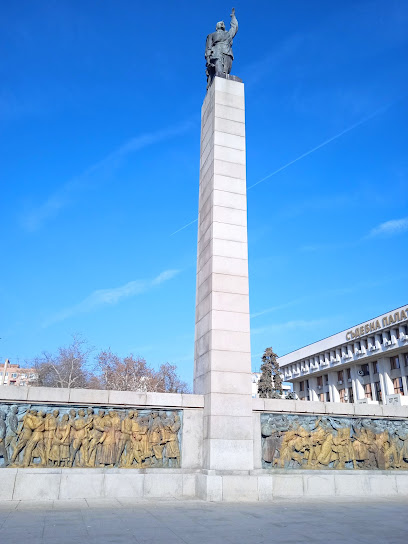
Burgas Bay
Discover the beauty of Burgas Bay: pristine beaches, vibrant culture, and unforgettable sunsets on Bulgaria's stunning Black Sea coast.
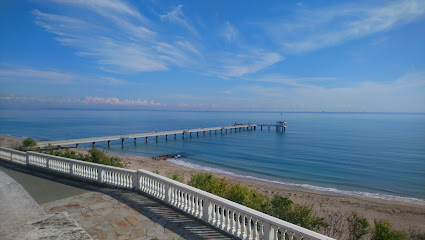
Archaeological Museum Burgas
Explore ancient Thracian, Greek, and Roman history at Burgas' Archaeological Museum, showcasing artifacts from the region's rich cultural past.
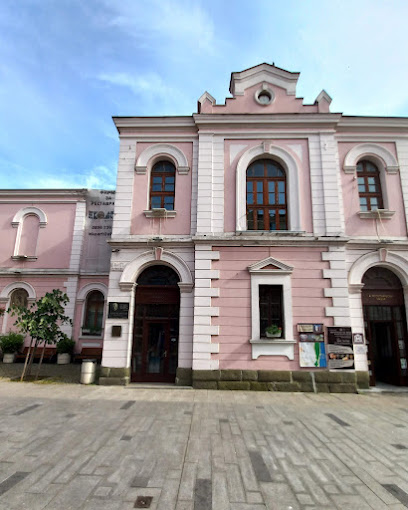
The Stone Ships
Discover the mystical Stone Ships of Sinemorets: a geological wonder steeped in legend, offering stunning coastal views and natural beauty.
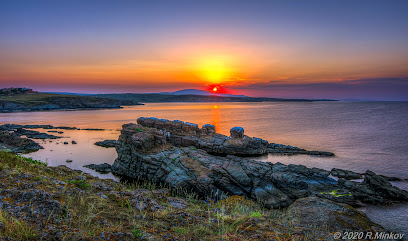
Central Beach Burgas
Discover the beauty and vibrancy of Central Beach Burgas, a premier destination for sun-seekers and beach lovers along the stunning Black Sea coast.
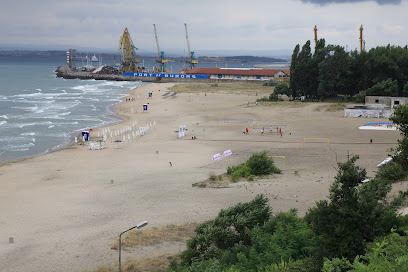
Burgas salt pans
Discover the therapeutic pink waters and diverse birdlife of Burgas Salt Pans, a unique natural attraction on the Black Sea coast.
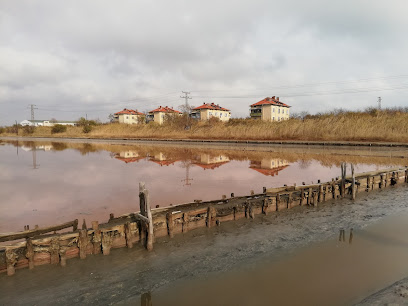
Unmissable attractions to see
Boris's Garden (Borisova Gradina)
Discover the serene beauty of Boris's Garden in Burgas, a lush park perfect for relaxation, exploration, and enjoying nature's tranquility.
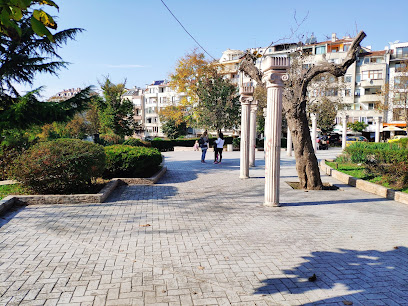
Chengene Skele Culture and Tourist Complex
Explore the breathtaking Chengene Skele Culture and Tourist Complex, where history meets stunning coastal beauty in Bulgaria.
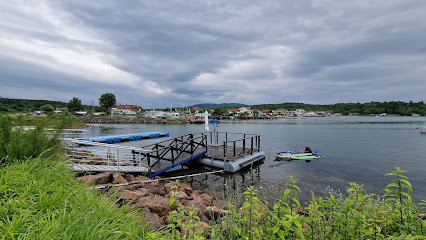
The Pier of Burgas
Discover the serene beauty of the Pier of Burgas, where stunning sea views meet vibrant local culture in a perfect seaside retreat.
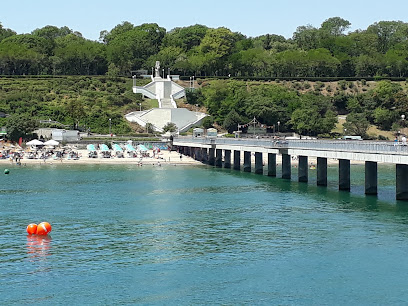
Natural History Museum of Burgas
Explore the Natural History Museum of Burgas, where the wonders of Bulgaria's biodiversity and geology come to life in a captivating setting.
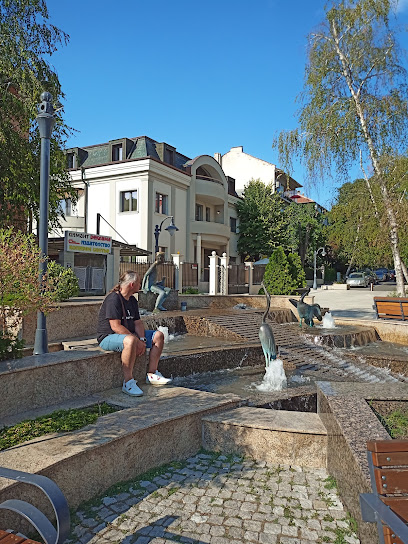
Shelter for birdwatching
Explore the enchanting birdwatching shelter in Burgas, a natural refuge where avian wonders and serene landscapes come together.
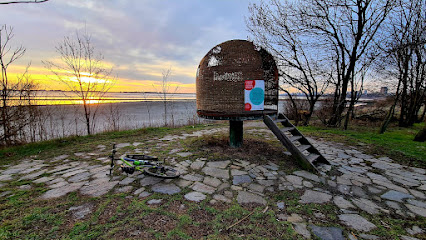
Free Flight Paragliding Burgas
Experience the thrill of paragliding in Burgas and enjoy stunning views of the Black Sea coast from above, an unforgettable adventure awaits!
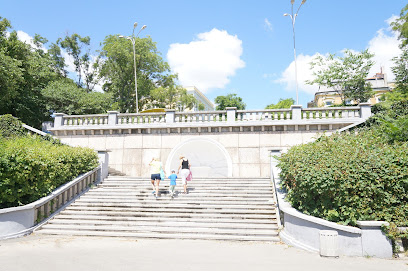
Foros
Discover Foros: Where ancient history meets stunning coastal beauty on the Black Sea, near Burgas. Explore fortress ruins and serene landscapes.
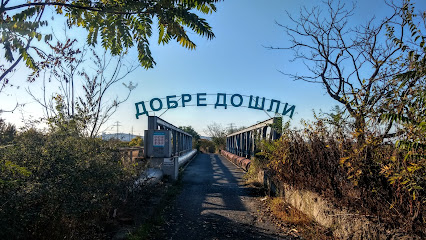
Морска кула
Discover the beauty of Burgas's coastline at the iconic Sea Tower, a landmark offering breathtaking views and a tranquil escape.
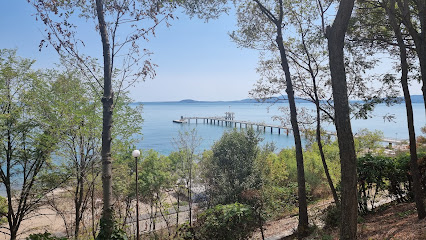
Морска гара - панорама
Discover the coastal beauty and cultural richness of Мoрска Гара, a premier tourist attraction in Burgas, Bulgaria, perfect for relaxation and adventure.
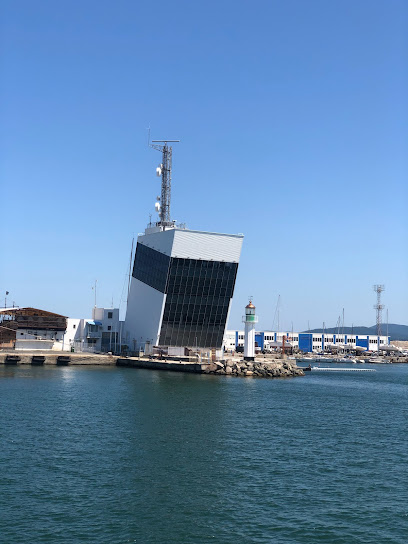
Arch of St. Nicholas the Miracleworker
Explore the Arch of St. Nicholas the Miracleworker, a stunning Burgas landmark that embodies history, culture, and architectural beauty.
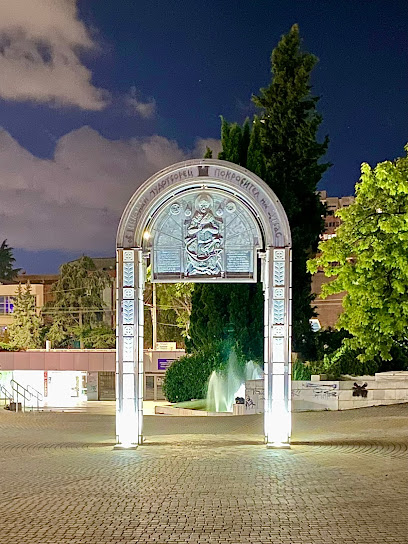
Love on the Horizon Benc
Experience romance with breathtaking Black Sea views at Love on the Horizon Benc in Burgas, a tranquil escape for couples and romantics.
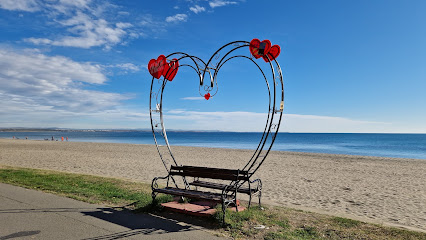
Sarafovo rock docks
Explore the stunning Sarafovo Rock Docks, a picturesque seaside attraction in Bulgaria, perfect for relaxation and scenic adventures.
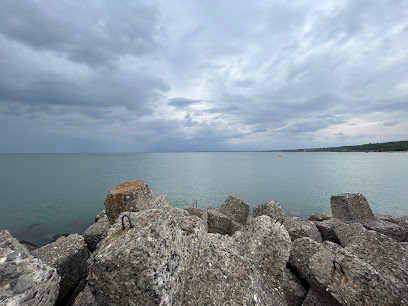
Duży Fiat
Explore the charming Duży Fiat in Sarafovo, a unique tourist attraction showcasing classic cars amidst Bulgaria's stunning coastal scenery.
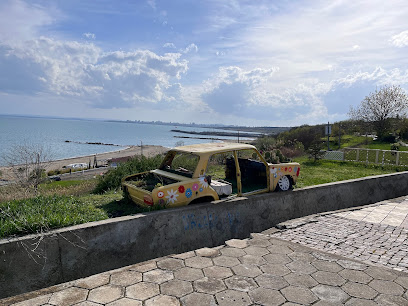
Tourist Attraction Train Burgas
Discover Burgas in a unique way with a ride on the charming Tourist Attraction Train, a fun experience for all ages!
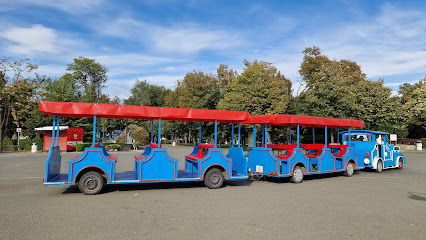
Sculpture Park
Discover a serene escape where art and nature intertwine at Burgas's Sculpture Park, a unique cultural gem in Bulgaria's coastal landscape.
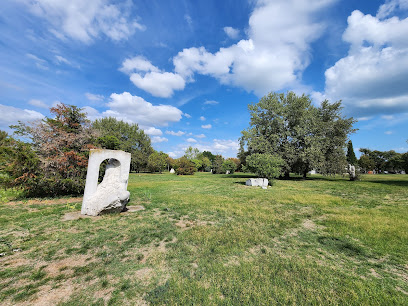
Essential places to dine
Happy Bar & Grill
Discover the culinary delights of Happy Bar & Grill in Burgas, offering exquisite European cuisine and fresh sushi in a vibrant setting.
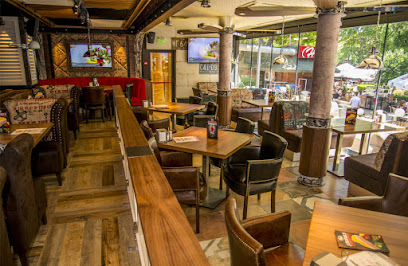
Dalyana
Discover Dalyana in Burgas: A delightful restaurant serving fresh local cuisine with an inviting atmosphere perfect for any occasion.
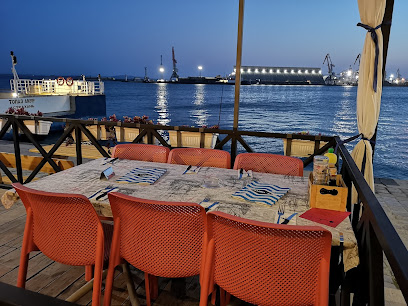
Grog
Experience the best of Bulgarian and international cuisine at Grog in Burgas - where every meal is a celebration!
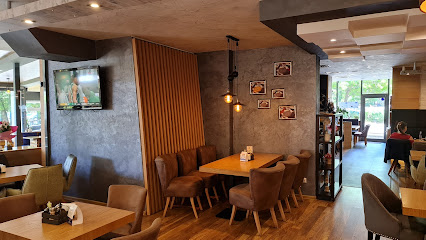
KAMYNITE pizza|bar|dinner
Discover exceptional flavors at KAMYNITE pizza|bar|dinner in Sarafovo - a top-rated destination for food lovers visiting Burgas.
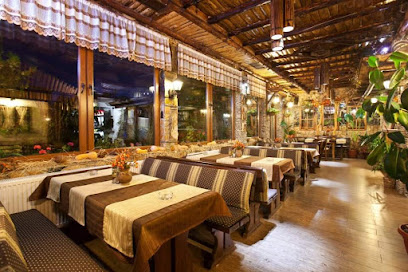
Neptune
Experience exquisite dining at Neptune in Burgas—where local flavors meet stunning beachside views.
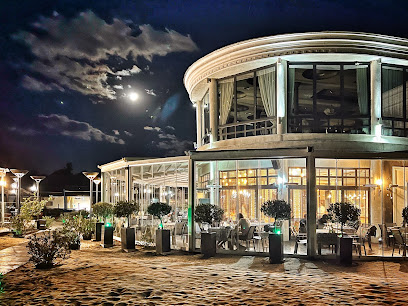
Dock 5
Experience exquisite dining at Dock 5 in Burgas - where culinary delights meet breathtaking marina views.
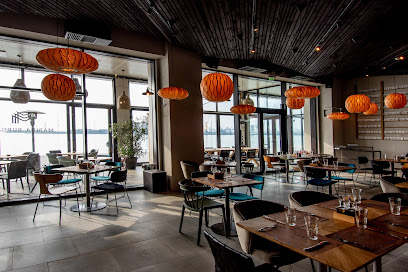
Incanto restaurant
Discover the exquisite flavors of Asian fusion and Italian cuisine at Incanto Restaurant in Burgas - where every meal is a celebration.
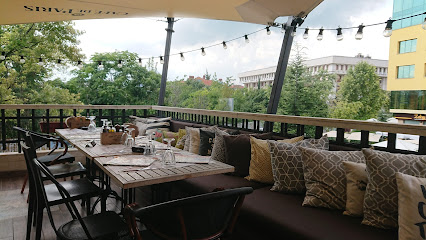
The Mill
Experience authentic Bulgarian cuisine at The Mill in Burgas – where tradition meets flavor in every dish.
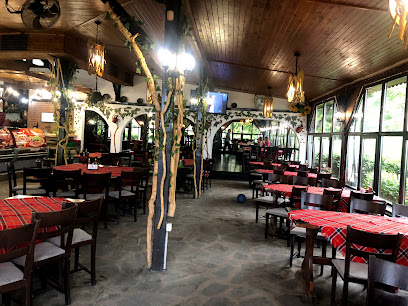
Kapana Seafront Fish Shack
Experience authentic Bulgarian flavors at Kapana Seafront Fish Shack - your go-to spot for fresh fish and chips with stunning seaside views.
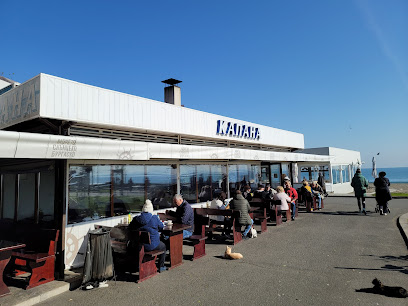
Zlatna ribka
Discover Zlatna Ribka in Burgas for an unforgettable seafood dining experience infused with local Bulgarian flavors.
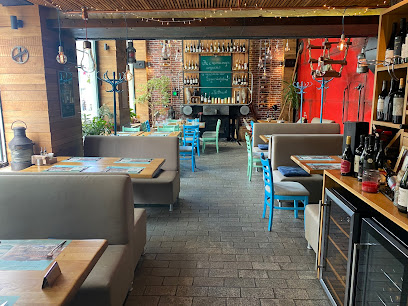
8 Mamas
Experience authentic Bulgarian flavors at 8 Mamas in Burgas – a culinary gem that combines tradition with modern dining.
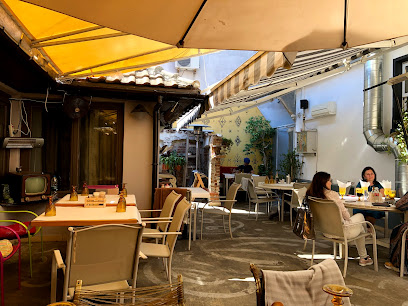
Maisons Burgas
Experience authentic Bulgarian cuisine with a modern twist at Maisons Burgas – a culinary gem in the heart of Burgas.
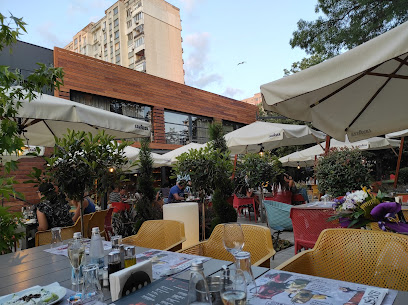
Ethno Restaurant Burgas
Discover authentic Bulgarian cuisine at Ethno Restaurant Burgas, where tradition meets flavor in a cozy setting.
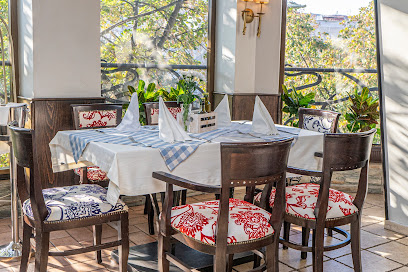
Ti Bar & Kitchen - ресторант и бар в Бургас
Discover the vibrant flavors of modern European cuisine at Ti Bar & Kitchen in Burgas - your ultimate dining destination.
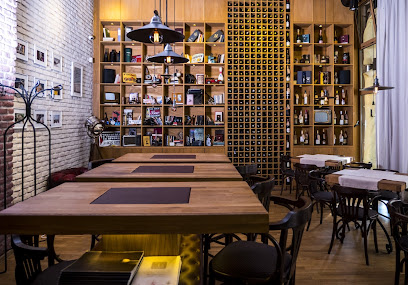
Golden Anchor
Experience the best of Burgas' culinary scene at Golden Anchor – where local flavors meet international cuisine in an inviting atmosphere.
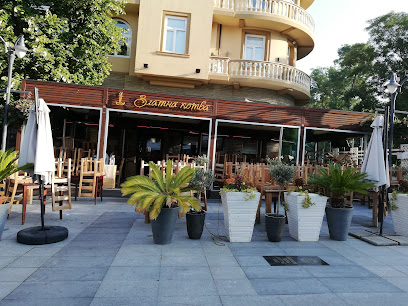
Markets, malls and hidden boutiques
Mall Galleria Burgas
Mall Galleria Burgas: Your Ultimate Shopping Destination in Bulgaria, Featuring Diverse Retail, Dining, and Entertainment Options.
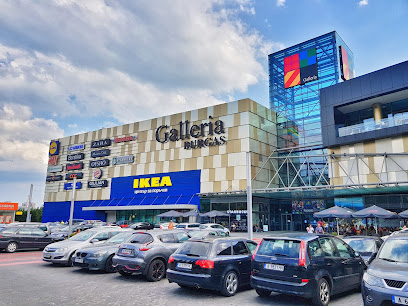
Mall Burgas Plaza
Discover the ultimate shopping experience at Mall Burgas Plaza, where style meets convenience in the heart of Burgas, Bulgaria.
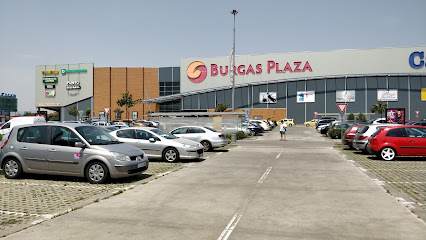
iCenter - Apple Authorized Reseller
Explore cutting-edge Apple products at iCenter in Mall Galleria Burgas, your go-to destination for all things tech in Bulgaria.
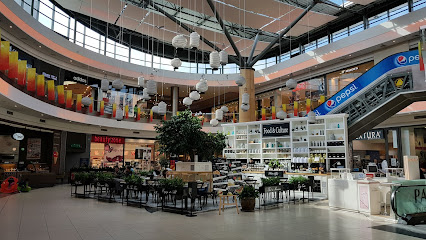
Tria City Center
Experience the vibrant shopping and dining scene at Tria City Center in Burgas, where modernity meets local culture.
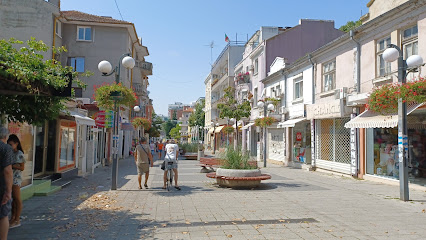
Magazia 1
Experience the best shopping and dining at Magazia 1 in Burgas, a perfect blend of style, flavor, and seaside charm.
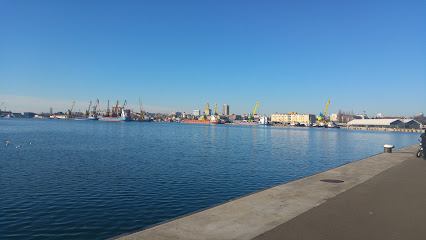
Mall Burgas Prestige
Discover the ultimate shopping experience at Mall Burgas Prestige, where retail therapy meets culinary delights and family fun.
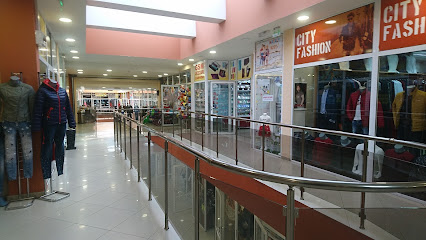
Fusion Galleria Burgas
Discover the ultimate shopping experience at Fusion Galleria Burgas, where fashion meets leisure in a vibrant atmosphere.
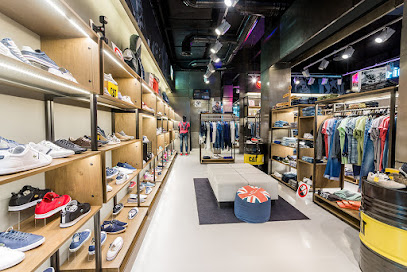
Zara
Shop the latest trends in fashion at Zara Burgas, where style meets affordability in a vibrant shopping atmosphere.
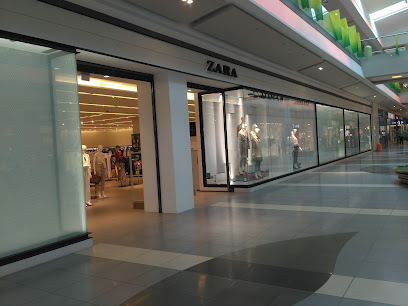
adidas Outlet Store Burgas, Stefan Stambolov Bul.
Discover unbeatable deals on sportswear, clothing, and fitness gear at adidas Outlet Store Burgas, the ultimate destination for active enthusiasts.
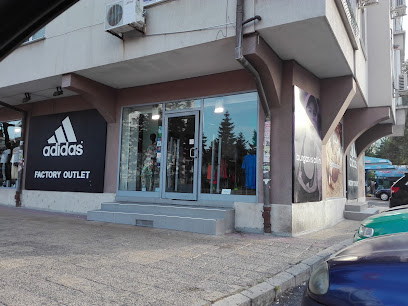
Barutnitsa
Discover the vibrant world of fireworks at Barutnitsa, Burgas' premier destination for pyrotechnics and celebration essentials.
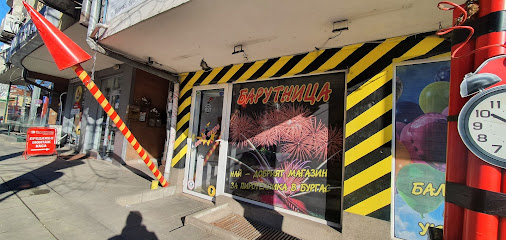
Gochev
Explore Gochev in Burgas – a local store offering fresh products and a taste of Bulgarian culture, perfect for tourists seeking authentic experiences.
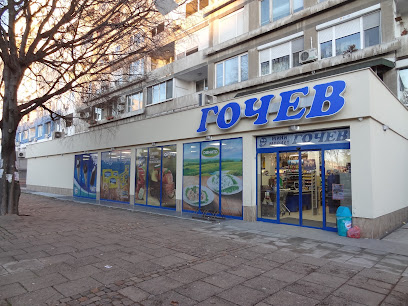
Zodiak - RCH
Explore a vast selection of fabrics and sewing supplies at Zodiak - RCH, the ultimate destination for fabric enthusiasts in Burgas.
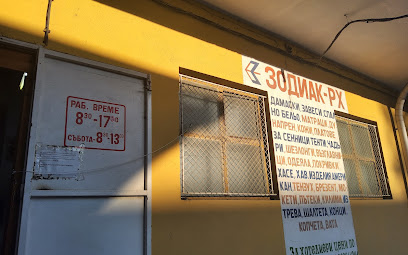
onegift.bg
Discover exquisite gift baskets at OneGift.bg in Burgas – the perfect blend of local charm and delightful flavors.
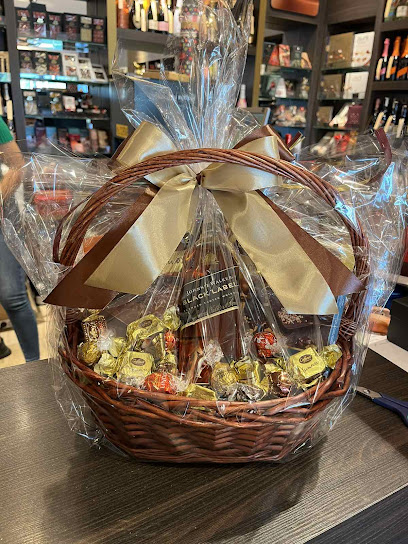
German Shopping Center Burgas
Discover fashion and style at the German Shopping Center Burgas, your premier destination for trendy clothing and unique shopping experiences.
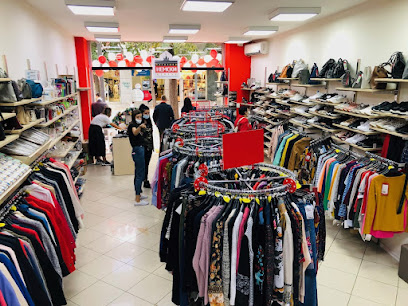
Humana second hand shop
Explore the vibrant Humana Second Hand Shop in Burgas for unique fashion finds and a sustainable shopping experience.
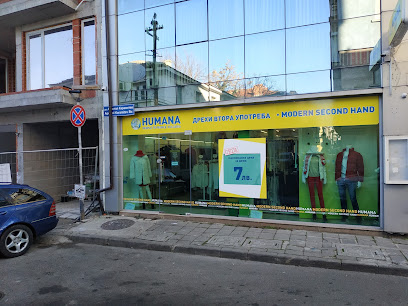
Essential bars & hidden hideouts
Caribe
Experience the vibrant atmosphere of Caribe in Burgas, where expertly crafted cocktails and a tropical ambiance await every visitor.
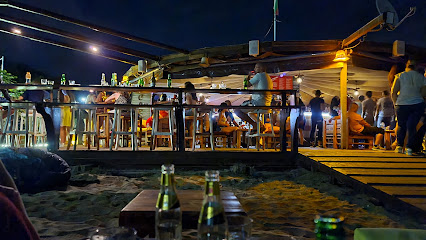
Papa Beer craft beer bar
Discover Burgas' vibrant craft beer scene at Papa Beer, where local brews and international flavors await in a cozy atmosphere.
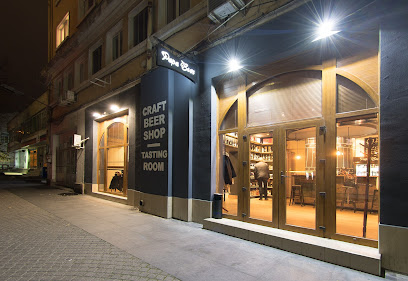
Saxa Beach
Discover the vibrant atmosphere of Saxa Beach, where sun, sand, and lively bars create the perfect coastal escape in Burgas.
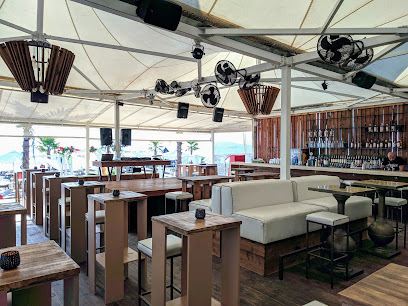
Malibu
Discover Malibu, the ultimate cocktail bar in Burgas, where expertly crafted drinks meet a vibrant atmosphere for the perfect night out.
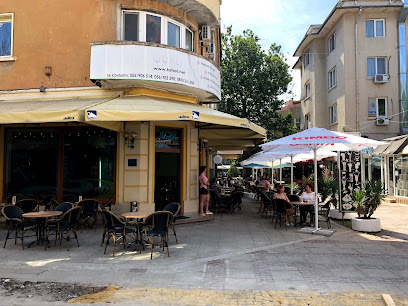
Bar Bossa
Experience the vibrant nightlife at Bar Bossa in Burgas, where great drinks and lively atmosphere meet in the heart of the city.
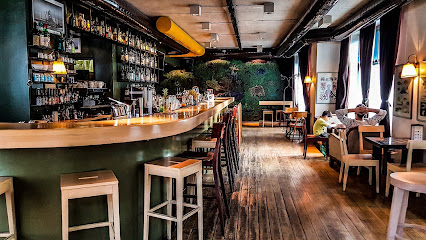
Beer'n'wine pub
Discover the vibrant ambiance and extensive drink menu at Beer'n'wine Pub, the perfect spot for tourists in Burgas to unwind and socialize.
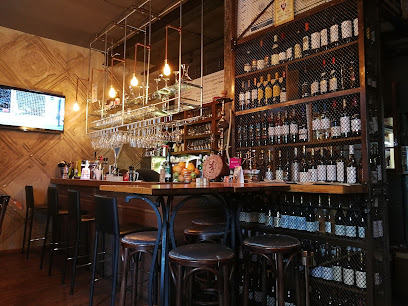
Barcode
Experience the vibrant nightlife at Barcode in Burgas, where great drinks, music, and memories await in a lively atmosphere.
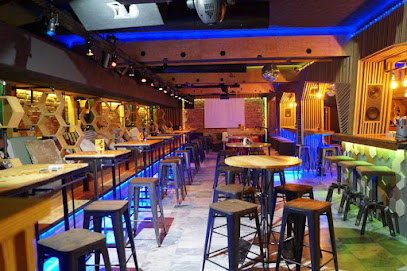
ENOTECA WINE & FRIENDS
Experience the best of Bulgarian wine culture at ENOTECA WINE & FRIENDS in Burgas, where every sip tells a story.
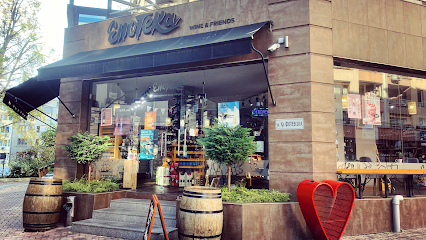
Bar Alive
Experience the vibrant nightlife of Burgas at Bar Alive, where great drinks and a lively atmosphere await you.
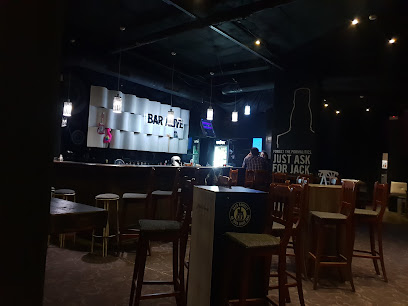
B62 Lifestyle Bar
B62 Lifestyle Bar: Where Burgas Comes Alive with Great Drinks, Live Music, and Unforgettable Nights.
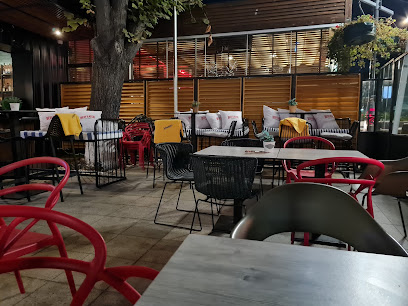
Piano Bar Sinatra Burgas
Discover the magic of live music and exquisite drinks at Piano Bar Sinatra, the heartbeat of Burgas nightlife.
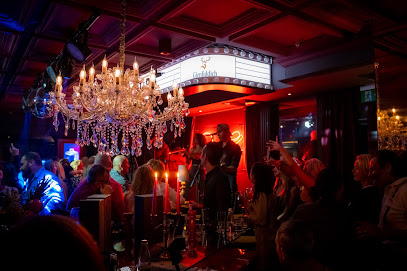
Ten Fingers
Experience the vibrant nightlife at Ten Fingers, a must-visit bar in Burgas with delightful cocktails and a lively atmosphere.
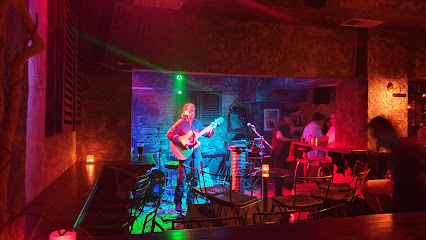
Gravity Ruin Bar
Discover the lively atmosphere of Gravity Ruin Bar in Burgas, where great drinks and vibrant music create the perfect nightlife experience.
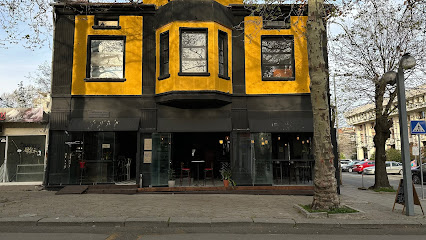
Studyo del Vino
Experience the essence of Burgas at Studyo del Vino, where fine wines and a cozy atmosphere blend for an unforgettable evening.
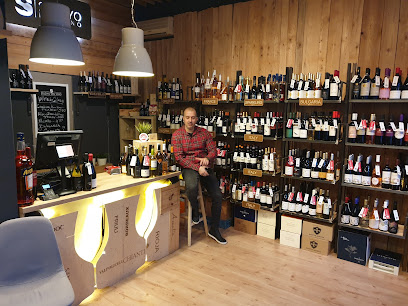
Local Phrases about Burgas Region
-
- HelloЗдравей
[Zdravey] - GoodbyeДовиждане
[Dovizhdane] - YesДа
[Da] - NoНе
[Ne] - Please/You're welcomeМоля
[Molya] - Thank youБлагодаря
[Blagodarya] - Excuse me/SorryИзвинявайте
[Izvinyavayte] - How are you?Как си?
[Kak si?] - Fine. And you?Добре. А ти?
[Dobre. A ti?] - Do you speak English?Говориш ли английски?
[Govorish li angliyski?] - I don't understandНе разбирам
[Ne razbiram]
- HelloЗдравей
-
- I'd like to see the menu, pleaseБих искал да видя менюто, моля
[Bih iskal da vida menyuto, molya] - I don't eat meatНе ям месо
[Ne yam meso] - Cheers!На здраве!
[Na zdrave!] - I would like to pay, pleaseБих искал да платя, моля
[Bih iskal da platya, molya]
- I'd like to see the menu, pleaseБих искал да видя менюто, моля
-
- Help!Помощ!
[Pomosht!] - Go away!Изчезвай!
[Izchezvay!] - Call the Police!Обадете се на полицията!
[Obadete se na politsiyata!] - Call a doctor!Обадете се на лекар!
[Obadete se na lekar!] - I'm lostЗагубил съм се
[Zagubil s'm se] - I'm illБолен съм
[Bolen s'm]
- Help!Помощ!
-
- I'd like to buy...Бих искал да купя...
[Bih iskal da kupya...] - I'm just lookingСамо разглеждам
[Samo razglezhdam] - How much is it?Колко струва?
[Kolko struva?] - That's too expensiveТова е твърде скъпо
[Tova e tvurde skapо] - Can you lower the price?Можете ли да намалите цената?
[Mozhete li da namalite tsenata?]
- I'd like to buy...Бих искал да купя...
-
- What time is it?Колко е часът?
[Kolko e chasat?] - It's one o'clockЕдин час е
[Edin chas e] - Half past (10)Половина на (10)
[Polovina na (10)] - MorningСутрин
[Sutrin] - AfternoonСледобед
[Sledobed] - EveningВечер
[Vecher] - YesterdayВчера
[Vchera] - TodayДнес
[Dnes] - TomorrowУтре
[Utre] - 1Едно
[Edno] - 2Две
[Dve] - 3Три
[Tri] - 4Четири
[Chetiri] - 5Пет
[Pet] - 6Шест
[Shest] - 7Седем
[Sedem] - 8Осем
[Osem] - 9Девет
[Devet] - 10Десет
[Deset]
- What time is it?Колко е часът?
-
- Where's a/the...?Къде е...
[Kade e...] - What's the address?Какъв е адресът?
[Kakav e adresat?] - Can you show me (on the map)?Можете ли да ми покажете (на картата)?
[Mozhete li da mi pokazhete (na kartata)?] - When's the next (bus)?Кога е следващият (автобус)?
[Koga e sledvashtiyat (avtobus)?] - A ticket (to ....)Билет (до ....)
[Bilet (do ....)]
- Where's a/the...?Къде е...
History of Burgas Region
-
The history of the Burgas Region can be traced back to the Thracians, an ancient Indo-European people who inhabited the area from around 4000 BC. They left behind numerous artifacts, including gold treasures and burial mounds (tumuli) that can be seen near the towns of Pomorie and Sredets. The Thracians were skilled in metalwork, agriculture, and trade, making them a significant cultural force in the region.
-
In the 7th century BC, Greek settlers from the city of Miletus established colonies along the Black Sea coast, including the city of Apollonia (modern-day Sozopol). Apollonia became a thriving center of trade and culture, known for its grand temples, rich artistic heritage, and the colossal statue of Apollo. The Greek presence brought new architectural styles, religious practices, and a flourishing maritime economy.
-
The Burgas Region became part of the Roman Empire in the 1st century AD. The Romans developed the infrastructure, building roads, fortresses, and public baths. The town of Deultum (near the present-day village of Debelt) was an important Roman colony and a military stronghold. Roman rule brought a period of prosperity and integration into the wider Roman trade networks, enhancing the region's economic and cultural life.
-
During the early medieval period, the region saw the rise of the First Bulgarian Empire. The fortress of Rusokastro, located near the town of Kameno, was the site of the decisive Battle of Rusokastro in 1332, where the Bulgarian forces defeated the Byzantine army. This victory solidified Bulgarian control over the region. The Second Bulgarian Empire also left its mark, with the construction of fortresses and churches, particularly in the Strandzha Mountains.
-
The Ottoman Empire conquered the Burgas Region in the late 14th century. The region became an administrative center and a melting pot of cultures. Ottoman architecture, such as mosques and baths, can still be seen in towns like Aytos and Karnobat. The period also saw the development of unique crafts, music, and culinary traditions that blended Bulgarian and Ottoman influences.
-
The 19th century was a period of national awakening for Bulgarians, marked by the struggle for independence from Ottoman rule. The Burgas Region played a significant role in this movement. The town of Kotel became a center for Bulgarian education and literature, producing notable figures like Petar Beron and Zahari Stoyanov. The liberation in 1878 led to the incorporation of the region into the newly established Bulgarian state.
-
In the 20th century, Burgas emerged as a major industrial and economic hub. The discovery of oil and the establishment of the Burgas Refinery in 1963 significantly boosted the local economy. The port of Burgas became one of the largest and busiest on the Black Sea, facilitating international trade. The region also developed as a popular tourist destination, known for its beautiful beaches, cultural festivals, and historic sites.
Burgas Region Essentials
-
Burgas Region is accessible via Burgas Airport (BOJ), which serves numerous international and domestic flights. The airport is located around 10 kilometers from the city center of Burgas. Alternatively, travelers can arrive by train or bus from major Bulgarian cities like Sofia and Plovdiv. The Burgas Central Railway Station and Burgas Bus Terminal South offer convenient connections to various parts of the region.
-
Public transportation in Burgas Region includes buses, minibuses (marshrutkas), and taxis. The city of Burgas has an efficient bus network that connects to nearby towns and attractions. Taxis are readily available and affordable. For those looking to explore the region at their own pace, car rentals are available at the airport and within the city. Cycling is also a popular mode of transportation, especially along the coastal areas.
-
The official currency in Bulgaria is the Bulgarian Lev (BGN). Credit and debit cards are widely accepted in hotels, restaurants, and larger shops. However, it is advisable to carry some cash, especially when visiting smaller towns and rural areas. ATMs are available in Burgas and other major towns in the region. Currency exchange services can be found at the airport, banks, and exchange offices.
-
Burgas Region is generally safe for tourists, but it is always important to take standard precautions. Avoid poorly lit and isolated areas at night, and be cautious with your belongings in crowded places. Specific areas with higher crime rates targeting tourists include the busier sections of the Burgas city center and popular tourist spots during peak seasons. Always remain vigilant and aware of your surroundings.
-
In case of emergency, dial 112, the emergency number for police, ambulance, and fire services. Hospitals and medical facilities are available in Burgas and larger towns within the region. It is recommended to have travel insurance that covers medical emergencies. Pharmacies are widely available for minor health issues and over-the-counter medications.
-
Fashion: Do dress modestly when visiting religious sites. Avoid overly revealing clothing. Religion: Do respect local customs and traditions. Always cover your head when entering churches and monasteries. Public Transport: Do be punctual for buses and trains. Don't play loud music or talk loudly on public transport. Greetings: Do greet people with a smile and a handshake. A slight bow or nod is also a sign of respect. Eating & Drinking: Do try local delicacies and accept food offerings graciously. Don't refuse hospitality, as it is considered impolite.
-
To experience Burgas Region like a local, visit the local farmers' markets where you can purchase fresh produce and traditional Bulgarian goods. Engage with locals who are often friendly and willing to share stories about the region's history and culture. Don't miss visiting the ancient town of Sozopol, the beautiful beaches of Sunny Beach, and the Strandzha Nature Park. For a unique experience, take a boat trip to the nearby islands such as St. Anastasia Island.
Trending Landmarks in Burgas Region
-
The Sea Garden
-
Castle of Ravadinovo
-
Зоопарк Бургас
-
Акве калиде – Термополис
-
Burgas
-
Camel Park Sunny Beach
-
Nature Conservation Center Poda
-
Church Saints Cyril and Methodius
-
The Pier of Burgas
-
Alyosha Monument
-
Burgas Bay
-
Archaeological Museum Burgas
-
The Stone Ships
-
Central Beach Burgas
-
Burgas salt pans
Nearby Cities to Burgas Region
-
Things To Do in Varna
-
Things To Do in Shumen
-
Things To Do in Stara Zagora
-
Things To Do in Haskovo
-
Things To Do in Gabrovo
-
Things To Do in Ruse
-
Things To Do in Istanbul
-
Things To Do in Constanta
-
Things To Do in Alexandroupoli
-
Things To Do in Bucharest
-
Things To Do in Pleven
-
Things To Do in Canakkale
-
Things To Do in Bursa
-
Things To Do in Kavala
-
Things To Do in Pitesti













